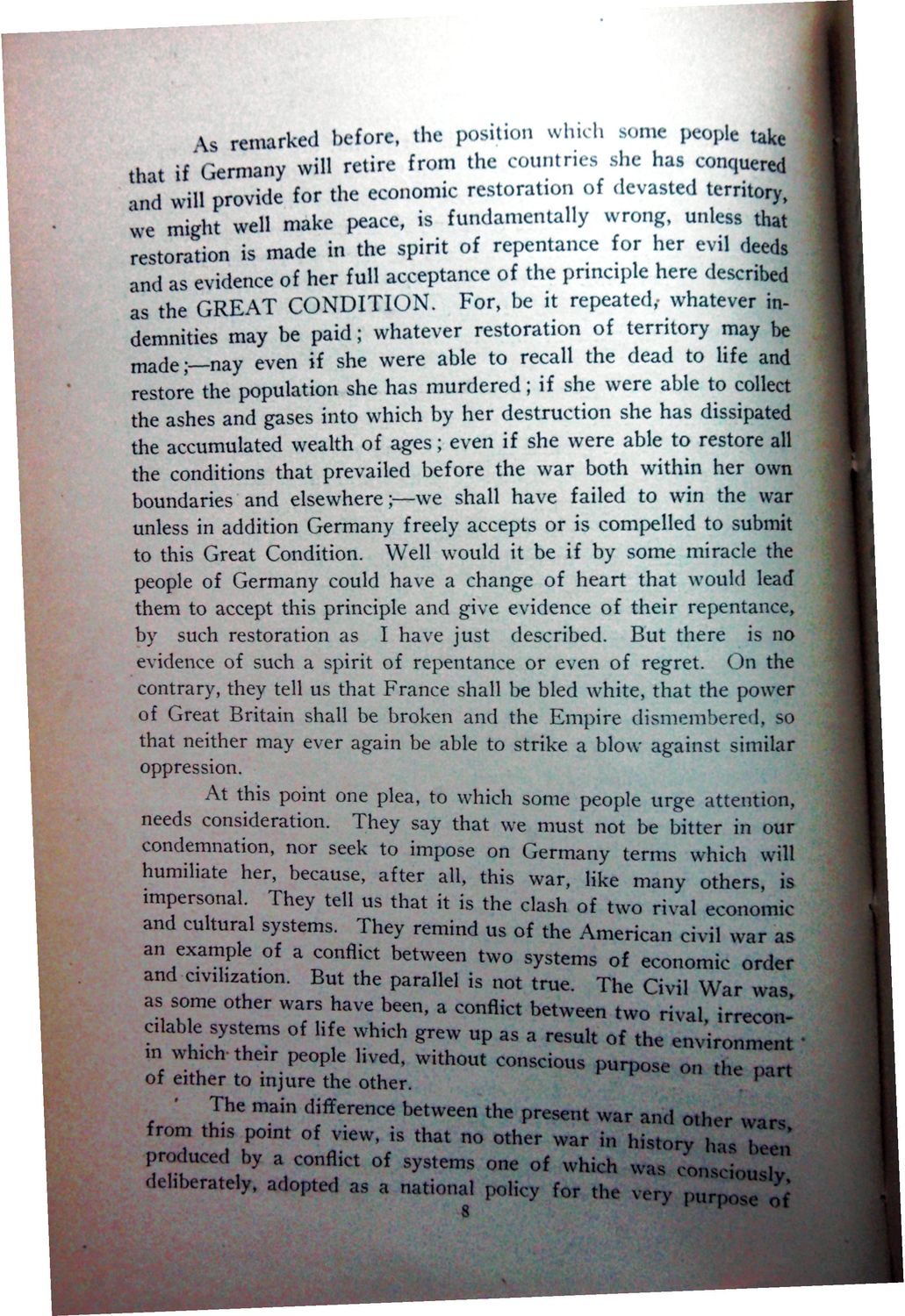| |
| |
Caption: War Publications - WWI Compilation 1923 - Article 13
This is a reduced-resolution page image for fast online browsing.

EXTRACTED TEXT FROM PAGE:
As remarked before, the position which some people take that if Germany will retire from the countries she has conquered and will provide for the economic restoration of devasted territory, we might well make peace, is fundamentally wrong, unless that restoration is made in the spirit of repentance for her evil deeds and as evidence of her full acceptance of the principle here described as the GREAT CONDITION. For, be it repeated,- whatever inmade;—nay even if she were able to recall the dead to life and restore the population she has murdered; if she were able to collect the ashes and gases into which by her destruction she has dissipated the accumulated wealth of ages; even if she were able to restore all the conditions that prevailed before the war both within her own boundaries and elsewhere;—we shall have failed to win the war unless in addition Germany freely accepts or is compelled to submit to this Great Condition. Well would it be if by some miracle the people of Germany could have a change of heart that would lead" them to accept this principle and give evidence of their repentance, by such restoration as I have just described. But there is no evidence of such a spirit of repentance or even of regret. On the contrary, they tell us that France shall be bled white, that the power of Great Britain shall be broken and the Empire dismembered, so that neither may ever again be able to strike a blow against similar oppression. At this point one plea, to which some people urge attention, needs consideration. They say that we must not be bitter in our condemnation, nor seek to impose on Germany terms which will humiliate her, because, after all, this war, like many others, is impersonal. They tell us that it is the clash of two rival economic and cultural systems. They remind us of the American civil war as an example of a conflict between two systems of economic order and civilization. But the parallel is not true. The Civil War was as some other wars have been, a conflict between two rival, irreconcilable systems of life which grew up as a result of the environment in which-their people lived, without conscious purpose on the part of either to injure the other. ' • The main difference between the present war and other wnrs from this point of view, is that no other war i„ histoiy has £Tn produced by a conflict of systems one of which was conseio, , ' deliberately, adopted as a national policy for the verv n u r n J r S 8 rpose
| |